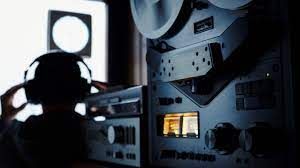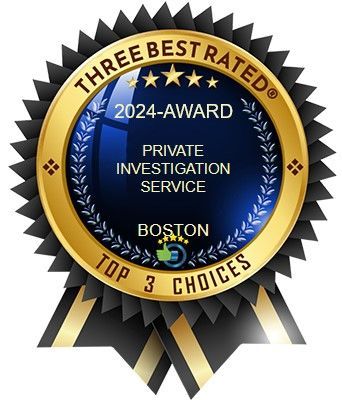
What Exactly is Surveillance ?
Surveillance is a vitally important important skill-set for a private investigator to master. A majority of private investigators perform surveillance on a regular basis and are called surveillance investigators or surveillance specialists.
Surveillance involves gathering evidence on a subject in a covert manner so that the surveillance investigator is not discovered, potentially damaging the chances of solving the case. While on surveillance, private investigators use different techniques to remain unnoticed, not only by the subject, but the general public. Trained investigators or surveillance specialists, use this skill to collect information by monitoring and observing the movements, activities and behavior of people.
Types of Surveillance
Surveillance on Foot
Ideally, a surveillance investigator wants to follow their subjects at a discreet distance. In quiet areas, back roads, late at night, small towns, cul-de-sacs, parks and other low traffic areas, surveillance is maintained at a greater distance. In busy areas, downtown metropolitan cities, shopping malls, restaurants, commercial buildings, and public events, surveillance is maintained at a shorter distance keeping the subject insight at all times. If the subject turns around, walked past them, look in a shop window or pretend to make a phone call. Avoid any sudden actions and do not stare at the subject as this may arouse suspicion.
Vehicle Surveillance
Investigators should follow the subject’s vehicle approximately 2 to 3 car lengths behind and change lanes regularly. The subject or passenger may frequently look behind them, so use a buffer, a vehicle between you and the subject. If the investigator notices the subject vehicle making several turns or appears to be driving around the block, the investigator needs to end surveillance immediately to avoid blowing their cover.
Surveillance Invisibility
Investigators on surveillance need to change their appearance to fit their surroundings. Wearing a nice suit while following your subject into a top restaurant may be appropriate, but you may stand out when working in a local tavern. It is a good idea to bring a change of clothes with you in your car and where a jacket that can is reversible. Remember, mingle in with the crowd rather than standing alone. It is common for investigators to where dark-colored or design free clothes to avoid being noticed. Think back to the last time you were in public and try to remember any faces that stood out.
Video Surveillance
It requires special skills for investigators to take photographs or video during surveillance. Private investigators need to get a clear view the subject’s face, who may be with the subject, vehicle, their license plate or activity. Surveillance equipment must have date stamps on video footage and photographs to prove when they were shot. While it’s important to get good close up photographs or video, an investigator needs to show a panoramic view of the area to indicate the subject’s exact location.
Surveillance Services
Shield Investigations conducts surveillance on a majority of their cases. We are skilled at all aspects of surveillance and have the proper equipment to support our client’s needs. A majority of services we provide use surveillance to document evidence for a case.
Examples include:
> Adultery and Infidelity
> Child Custody
> Employee Theft
> Civil and Criminal Investigations
> Harassment
> Personal Security
> Stalking
> Undercover
> Workers Compensation Injury Fraud
> Surveillance and Privacy
Many of us worry that surveillance affects our privacy and why balancing the act of security and privacy should only be attempted by a trained and licensed investigator. It’s important to stay on the right side of the law.
Speaking about privacy and the law, in the past, several media news agencies reported about leaked documents stating a government program called “PRISM”, and how the NSA is violating US citizen’s privacy by collecting data from electronic communications, i.e. email correspondence, texting, IM, social media sites, search engines, encryption security companies and more.
Additionally, not only are government and local law enforcement entities monitoring and tracking our activities, but newer technology using automatic license plate recognition/reader (APLR) systems are becoming more common. Automatic number-plate recognition can be used to store the images captured by the cameras as well as the text from the license plate, with some configurable to store a photograph of the driver. Systems commonly use infrared lighting to allow the camera to take the picture at any time of day or night.
Facial Recognition is a technology capable of identifying or verifying a person from a digital image or a video frame from a video source. Facial recognition works by comparing selected facial features from given image with faces within a database that can uniquely identify a person by analyzing patterns based on the person's facial textures and shape.
Many people are concerned about the privacy issues that come with facial recognition. The technology can track you, which makes people uneasy. In addition, large data breaches are all too common these days and the personal information that facial recognition software collects is not immune.
A recent breach revealed that 100,000 photos and license plates were compromised from the Border Agency database. This data related to those entering and exiting the U.S. Another breach was discovered in a UK biometric system used by banks, in which over a million people’s fingerprints and facial recognition information was discovered on a publicly accessible database. These breaches highlight the flaws in the security of facial recognition databases.
A recent study found that 56% of Americans trust law enforcement to use facial recognition responsibly, but others aren’t as confident that the data will be used ethically.
The same study also found that while a majority thought it was acceptable for law enforcement to use facial recognition technology to assess security threats in public spaces, i.e. airports, they did not think other uses such as monitoring apartment buildings, companies tracking attendance of employees or advertisers seeing how people respond to ad displays were acceptable. This distrust comes from the fear that these private companies will misuse the data.
Not only do private companies have access to the data, but many facial recognition databases are public. This means that any person, even those with malicious intent, can find you on the database and track you down.
Shield Investigations investigators are trained surveillance specialists who stay current with laws regarding surveillance and privacy in Massachusetts.
Shield Investigations provides covert surveillance and understands the legalities involved. To better understand this, we have provided this article to give you insight what a Private Investigator must be aware of when using this method to collect evidence.
The best option is to hire a qualified private investigator who is a surveillance specialist. Shield Investigations is licensed to perform surveillance to gather evidence. A private surveillance investigator is the most effective way to observe someone or something. Private investigators, who are skilled surveillance specialists are well-versed in current laws and often work on civil and criminal investigations, so you don’t have to worry about legal impediments when you entrust your surveillance needs to trained investigators.
If you suspect a spouse is cheating, an employee is dishonest, or need proof of harassment, it can be difficult to concentrate on everyday tasks at home or at work. Our surveillance investigators are here to help. If you would like to have a confidential conversation regarding surveillance and how it may benefit you case, please call us at your convenience.








